by Lisa Cooke | Oct 18, 2017 | 01 What's New, Google, Translation tips |
You can often use Google Translate for genealogy to help you translate single words or phrases. But what if you need to translate an entire passage or document? Here’s why you might want to use a different web tool–and a list of top translation websites from expert Katherine Schober.
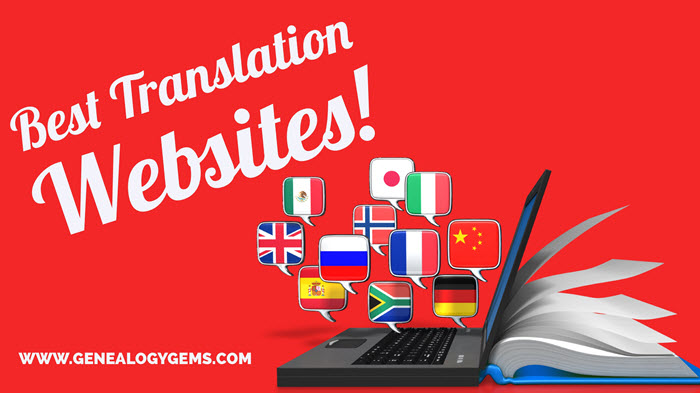
Thanks to Katherine Schober of SK Translations for this guest blog post.
Google Translate for Genealogy–and its Limits
Google Translate is a good tool for translating individual words and short, non-complex sentences. But it works better with basic words rather than long sentences or paragraphs. This tool often ignores idioms, or words and phrases that mean something different than the actual words imply.
Mistranslations of idioms can completely change the meaning of a document and leave you confused about certain aspects of your ancestor’s life.
In German, for example, there are multiple idioms using the word “sausage,” a food that is a large part of the culture in Germany. If you type in the German idiom “Jemandem eine Extrawurst braten,” which literally means “to fry someone an extra sausage,” Google translates it word for word, coming up with the translation result “to bake an extra sausage.” This may leave the non-experienced person confused, thinking their ancestor was discussing cooking a meal. However, an experienced translator would know that this phrase actually means “to give someone special treatment,” and has nothing to do with cooking. (See my blog post, “10 Hilarious German Sausage Sayings to Try on Your Friends.”)
Google Translate can also be unreliable if a word has multiple meanings. For example, think of the word “run” in English. It can mean “a fast jog,” “a tear in your stocking,” “to be a candidate for an election,” and so on. Google Translate could easily pick the wrong English translation of your of your word, leaving you with a falsely translated document or simply very confused.
Beyond Google Translate: Best Translation Websites
Here are three websites I recommend when Google Translate just isn’t up to your genealogy translation needs:
- Linguee.com: This is a very helpful translation site. Unlike Google Translate, it shows you words and phrases translated into English by actual translators and not machines. You receive the definition of the word, plus pages of various sample sentences that include your word/phrase in a contextual format (in both the foreign language and in English). This means you can scroll through the examples to see which translation is the most accurate English word for your document.
- WordReference.com: This is an online dictionary with multiple language options available. Depending on the word, it may provide sentence examples and other entries where your word is found. This helps you to ensure the translated word is the right option for your text.
- Google.com: Although Google Translate can’t always get the meaning right, the Google.com search engine is a wonderful reference. If you can’t find your foreign word on the sites above, try typing it into a Google search with the word English after it. Sometimes you will find forums where your word is discussed by various family historians. If this doesn’t work, try adding genealogy after English, or taking English out and just writing genealogy. Playing around with your search request may very well give you different results. And Lisa Louise Cooke recommends putting quotation marks around the word in order to ensure it appears in every search result. Here’s an example of how that search would look: “Geburt” English Genealogy
 I’ve previously recommended top websites especially for German translations on this blog: click here to check it out. Good luck to Sue, who commented after reading that post: “Great article! I can’t wait to try some of these websites. We have a large stack of German letters written to my husband’s mother that look impossible to read. Thank you!”
I’ve previously recommended top websites especially for German translations on this blog: click here to check it out. Good luck to Sue, who commented after reading that post: “Great article! I can’t wait to try some of these websites. We have a large stack of German letters written to my husband’s mother that look impossible to read. Thank you!”
Katherine Schober of SK Translations specializes in translating German genealogical and historical documents. She has recently joined Lisa Louise Cooke on the Genealogy Gems Premium Podcast: catch her creative, use-in-any-language translation tips in episodes #151 and #152. Not a Premium member yet? Click here to see what you’re missing out on in the Genealogy Gems Premium Podcast: Premium members get a year’s worth of access to all episodes! (Time for a binge-listening weekend??) And if you’d like to learn how to learn how to read the old German handwriting check out her online course here.
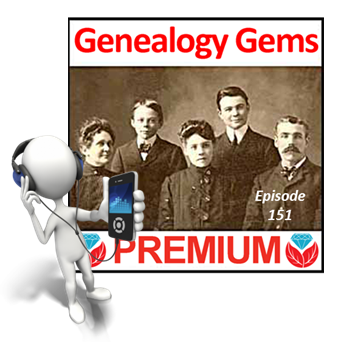
by Lacey Cooke | Apr 5, 2019 | 01 What's New, Records & databases
A brand new vital records collection is available online now for Ontario, Canada! The Ontario Genealogical Society’s new database is available at Findmypast, along with exclusive Parish Registers for Kent, England. Ancestry.com also has a new collection of...
by Lisa Cooke | Sep 1, 2017 | 01 What's New, British, Records & databases
English genealogy records abound in this week’s roundup of new family history records online. Find England BMD, parish records, newspapers, and more. Also: an important addition to the British Newspaper Archive’s Irish newspaper collection, over 1,000 years of Chinese documents and records, German vital records, parish records for Italy and Sweden, and new US collections for VA, OH and NY.
English Genealogy Records Now Online
Ancestry.com subscribers can now search these English genealogy record collections:
-
-
-
-
- Bedfordshire Petty Sessions 1854-1915 This collection includes details of over 100,000 individuals involved in petty session hearings in Befordshire. Details for each individual may include name, role in the case, date of the hearing, location of the court, and even the fines or punishments given to the defendant(s).
- Bedfordshire Valuation Records 1838-1929 These records deal solely with the value of properties in Bedfordshire county. The volumes name the proprietor or tenant, describe or name the property and give an annual rental value. It will also sometimes give an acreage for the property.
- Bedfordshire Land Tax Records 1797-1832 Details found within this collection include may include year of residence, name of occupier, name of owner, and parish of residence.
- Shropshire Extracted Church of England Parish Records, 1538-1812. This collection of indexes is taken from various published versions of parish and probate records from Shropshire, England dating from the early 1500s (with some non-parish records earlier) to the late 1800s. “The records include baptisms/christenings, burials, marriages, tombstone inscriptions, obituaries, tax lists, wills, and other miscellaneous types of records,” states the collection description. “Also included are some records from non-conformist churches.”
At FamilySearch.org, you can now search a free collection of Staffordshire Church Records. In partnership with Findmypast’s expansion of Staffordshire records, this collection provides church records from 1538-1944. Nearly 5 million indexed records and over 278,000 images are included.
Over at Findmypast, subscribers can now search extensive new collections for Buckinghamshire. (The original records are held at the Buckinghamshire Archives.) New databases include:
-
-
-
-
- Buckinghamshire Baptism Index 870,000 transcripts created from original records held at the Buckinghamshire Archives. You will also discover your ancestor’s birthplace, the date of the baptism, their father’s occupation and residence.
- Buckinghamshire Banns Index Explore 101,000 records created from original parish registers and bishop’s transcripts. “Each transcript will reveal the name of your ancestor’s intended spouse, the couple’s residence, the dates the announcements were read and their intended date of marriage.”
- Buckinghamshire Marriage Index Over 485,000 transcripts “will reveal the couple’s birth years, marital status, occupation, date of marriage, place of marriage, residence, occupation, father’s names, father’s occupations and the names of any witnesses.”
- Buckinghamshire Burial Index More than 662,000 transcripts are included, created from original parish registers and bishop’s transcripts. “Each record will reveal your ancestor’s birth year, age at death, burial date, and residence. An archive reference is also included, allowing you to locate a copy of the original document.”
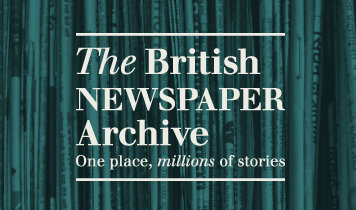 British and Irish Newspapers Now Online
British and Irish Newspapers Now Online
Over 2.3 million new articles and 7 brand new titles have been added to the British Newspaper Archive’s collection of historic newspapers this month. New titles now available to search include:
- Tenby Observer
- Brechin Herald
- Milngavie and Bearsden Herald
- Alcester Chronicle
- Abergavenny Chronicle
- Ripley and Heanor News and Ilkeston Division Free Press
- Eastern Daily Press and the Colchester Gazette
Click here to explore these and other historic British Newspapers.
More than 5,000 pages from the Leitrim Advertiser have been added to Irish newspapers at the British Newspaper Archive. From the description: “The paper was originally published in Mohill, Leitrim and known in later years and The Leitrim and Longford Advertiser.” The earliest issue dates back to 1886, through 1916. With this addition, the British Newspaper Archive now has a newspaper for every county in Ireland!
German Births and Deaths: Bischofswerda
Ancestry.com has added new collections for Bischofswerda births (1876-1902) and deaths (1876-1951). Bischofswerda is located about 22 miles east of Dresden at the edge of Upper Lusatia in the German state of Saxony. To local residents, it is also known as “Schiebock” and known for its large historic market square and town hall.
Italian civil registration: Padova
FamilySearch has published 42,000 newly indexed records and images in its free collection,
Civil Registration Records: Padova 1621 – 1914. From the collection description: “Civil registration of births, marriages, and deaths within the custody of the State Archive of Padova. Includes supplemental documents, residency records, ten-year indexes, and marriage banns. Availability of records is largely dependent on time period and locality.”
Swedish Household Examination Books
Also at FamilySearch are 1 million indexed records and images for
Swedish Household Examination Books 1880-1920. According to the collection, “Each year until 1894 the Parish Priest would visit each home in the parish and test each individual’s knowledge of the catechisms. In addition, they would collect birth, death, and marriage dates as well as where families had moved to or from and when, etc. The priest would then come back each year and update or edit the information from the previous year and note any changes in the population of the home.” (These are also online at
MyHeritage.com.)
Click here to read a great article for getting started on your Swedish genealogy.
Chinese Records at the Library of Congress
An exciting announcement from the Library of Congress this week! “The contents of the Asian Division’s Pre-1958 Chinese Collection, totaling more than 42,000 items, are now fully searchable through the Library’s online catalog in both Chinese characters and Romanized script. This rich and diverse collection has served researchers and general audiences for nearly 90 years; until now, however, bibliographic records for these materials were only available through a card catalog.”
United States
New York. The Vassar College Digital Newspaper Archive is now available online. Provided by the Vassar College Libraries, this archive provides access to newspapers published by Vassar College students. Earliest issues date back to 1872, and cover a wide range of topics and events on and off campus. This collection currently contains over 85,000 pages.
Ohio. New at Ancestry this week are Ohio Soldier Grave Registrations, 1804-1958. This database contains grave registration cards for soldiers from Ohio who served in the armed forces, mainly from the time of the War of 1812 up through the 1950s. Records may contain an individual’s name, date and place of birth, date and cause of death, location of burial, next of kin, military service information, and more.
Also in Ohio, Kent State University has completed the digital Daily Kent Stater Archive. It contains 90 years of Kent State student publications, dated from Feb 1926 to Dec 2016. According to the
press release, “it covers several historic events as well as some great memories for the Kent State alumnae.” Check out the introductory video!
Did you know? You can search the Genealogy Gems website for articles about your favorite genealogy categories–including records and research tips for several countries and ethnicities. Go to our home page and click on the dropdown menu under What do you want to learn about? Scroll down to see the various categories or start typing a few letters to jump down to that part of the alphabetical list.
Disclosure: This post contains affiliate links and Genealogy Gems will be compensated if you make a purchase after clicking on these links. Thank you for supporting Genealogy Gems!
by Lisa Cooke | Apr 30, 2014 | 01 What's New, Family Tree Magazine, Research Skills, Technology
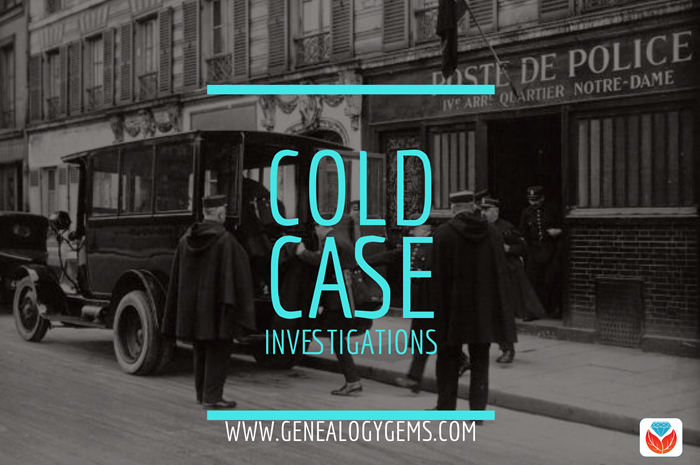
We’ve all got genealogy brick walls in our research: family mysteries we have so far found unsolvable. In the new issue of Family Tree Magazine (May/June 2014), Lisa’s got a great article packed with 14 strategies for SOLVING those perplexing questions.
The article is “Warming Up a Cold Case,” and it’s got a fun criminal investigator theme. I won’t give all 14 of her tips away, but some of my favorites include re-examining old evidence, finding new witnesses and going on a genealogical stakeout. And one that made me laugh out loud: “Post wanted posters.” And then I just had to put my ancestor’s face on a wanted poster (right).
How do you really create a wanted poster for your ancestor? Lisa shares these ideas in the article:
1. Post their names on genealogy online message boards (like at Ancestry.com). But fill in those “wanted” details. Instead of height, weight and hair color, add what you know about their births, marriages, deaths, family relationships and residences.
2. Post your family tree online at any number of sites for free. Sites organize their trees in one of two ways. Ancestry.com, MyHeritage.com and others can i buy medication without insurance offer the individual tree model. You upload (or build on the site) and maintain your own tree. FamilySearch.org, WikiTree, Geni.com and WeRelate.org are community tree sites. You may work from a view of your own tree, but the site is merging your tree with others behind the scenes to create a single world family tree (each does this a slightly different way).
3. Start your own family history blog. Write keyword-rich blog posts that make it easy for Google searchers to find your ancestors there. Check out Lisa’s free four-part series on how to create a genealogy blog at the Genealogy Gems YouTube Channel. This link will take you to the 4 part video playlist.

Find the entire article in the May/June issue Family Tree Magazine. Even better: Genealogy Gems Premium Members can also watch Lisa’s one hour video class Brick Walls: Cold Case Investigative Techniques. Not a Premium Member yet? You’re missing out on 24/7 access for a year to some of her most popular classes on Google, Google Earth, organization, Evernote, newspaper research and more. Learn more about Genealogy Gems Premium Membership here.
by Lisa Cooke | Jan 15, 2015 | 01 What's New, Ancestry, Beginner, FamilySearch, Findmypast, MyHeritage, Records & databases
Bill Johnson in Manassas, Virginia, USA, wrote to me with this question–and I know he’s not the only one asking it!

“It’s difficult to know what genealogical resources to spend your money on. I have been a subscriber to Ancestry.com (world package) for years. But, there is FindMyPast, MyHeritage, etc. Your books identify dozens of other resources that all sound good — and cost money. Then there are some of the free resources like the National Archives and the LDS resources [FamilySearch]. Where should you spend your time and money? While money is always a factor, I find that my time is a more precious resource. If I have Ancestry.com, would I gain anything by subscribing to FindMyPast? MyHeritage? FamilySearch? The National Archives or the BLM sites? I am concerned about wasting money on redundancy. Why visit a site that only offers a select subset of the data that I access through Ancestry?
Which paid sites do you regularly use? Which free sites do you use? Your books have a plethora of suggestions but the pool of resources is increasing by the day. It is really getting rather confusing.”
What a great question!!! Here’s my answer:
“I agree, it’s gotten more complicated selecting the best genealogy websites for your own needs. I will take a look at covering this more in depth in a future podcast episode. I do have a few ideas for you right now.
It’s really about accessing the right website (or tool) for the task.
- For general depth of records I turn first to Ancestry.com (you only need the world edition if you need records outside of the U.S.), and then FamilySearch.org. With Ancestry.com, I make sure I use the card catalog and search by location tool (scroll down to the map) so I’m not missing all the record sets that don’t automatically jump to the top of the general search results. FamilySearch is free, so I check its online resources EVERY TIME I have a question. I check both browsable and indexed content (from the main screen, click Search, then Records, then scroll down and click Browse all Published Collections (or click to that screen here). You’ll be able to choose a location and see all content they have and whether it’s been indexed or you just have to browse through it (like reading microfilm, only online).
- For me personally, I was slow to warm up to MyHeritage because I just wasn’t sure how it would best help me. Once I embraced it and posted my tree, its strength in my research became clear: for the first time ever I connected with a distant cousin in the “old country” (Germany)! The international user base of MyHeritage stands above other sites. And the fact that you can create your own family site on MyHeritage makes it a great ongoing resource for staying connected. (Disclosure: MyHeritage is a sponsor of the Genealogy Gems podcast. However, that is because of the value I came to experience in my own research as I just mentioned.)
- When I am focused on my husband’s British roots I head to FindMyPast and pay as I go as needed.
 Our mission here at Genealogy Gems is to reveal innovative ways of using the myriad of tech tools so you’ll know you can turn to them only when you need them. Think of it as a toolbelt. The right tool for the right job! But I also only bring tech tools and websites to the podcast and my website that I believe are worthwhile. Believe it or not, I weed a lot of them out!
Our mission here at Genealogy Gems is to reveal innovative ways of using the myriad of tech tools so you’ll know you can turn to them only when you need them. Think of it as a toolbelt. The right tool for the right job! But I also only bring tech tools and websites to the podcast and my website that I believe are worthwhile. Believe it or not, I weed a lot of them out!
I hope that helps, and I wish you great genealogical success!” Lisa

 I’ve previously recommended top websites especially for German translations on this blog: click here to check it out. Good luck to Sue, who commented after reading that post: “Great article! I can’t wait to try some of these websites. We have a large stack of German letters written to my husband’s mother that look impossible to read. Thank you!”
I’ve previously recommended top websites especially for German translations on this blog: click here to check it out. Good luck to Sue, who commented after reading that post: “Great article! I can’t wait to try some of these websites. We have a large stack of German letters written to my husband’s mother that look impossible to read. Thank you!”

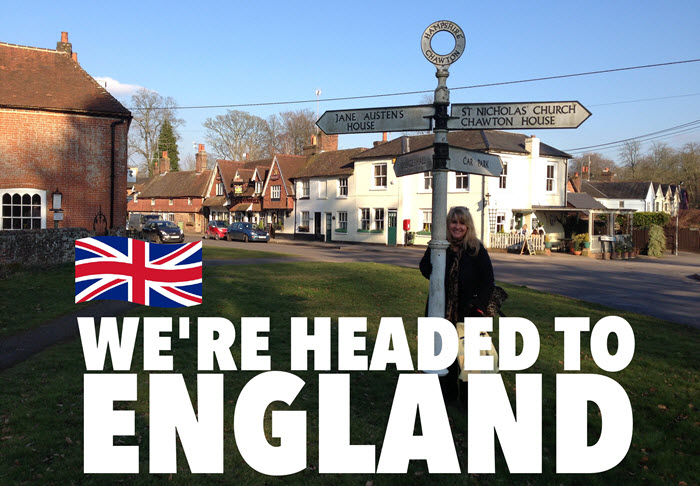

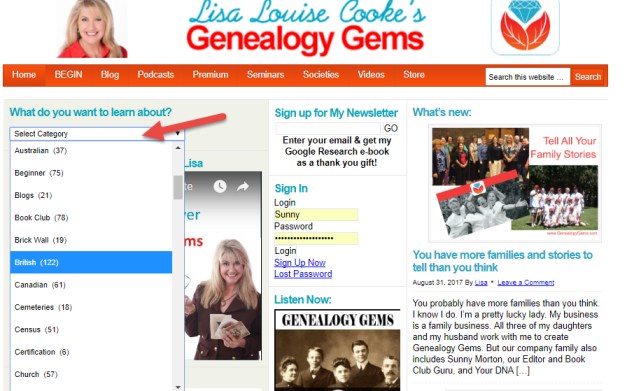



 Our mission here at Genealogy Gems is to reveal innovative ways of using the myriad of tech tools so you’ll know you can turn to them only when you need them. Think of it as a toolbelt. The right tool for the right job! But I also only bring tech tools and websites to the podcast and my website that I believe are worthwhile. Believe it or not, I weed a lot of them out!
Our mission here at Genealogy Gems is to reveal innovative ways of using the myriad of tech tools so you’ll know you can turn to them only when you need them. Think of it as a toolbelt. The right tool for the right job! But I also only bring tech tools and websites to the podcast and my website that I believe are worthwhile. Believe it or not, I weed a lot of them out!